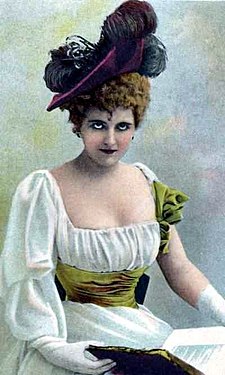the Adopted (Lat. Adoptivus): "Childebert is usually reckoned to be the natural son of Grimoald I, the mayor of the palace of King Sigibert III of Austrasia. . . ., who adopted him, although another version of the story has the situation reversed. By the time of Sigibert the Merovingian dynasty was almost powerless, real power having shifted to the hereditary mayors of the palace. When Sigibert died in 657, Grimoald had the rightful heir, Dagobert, sent to Ireland "on pilgrimage," while he installed the boy Childebert as his puppet on the throne.This caused opposition among the nobles, however, which resulted in 662 in Grimoald's murder and Childebert's overthrow and probably his death as well." (adoption.com-Childebert III Adoptivus)
the Just: " . . . Before the war was terminated, Childebert III died in 711. . . The historians of the time, who only devote a single phrase to his nominal reign of sixteen years, have joined to his name the epithet of just, without recording a single action which explains that title. We are ignorant of his age, the period of his marriage, and the name of his wife: we only know that he left a son of about twelve years of age, whom Pepin and the Franks acknowledged for his successor, under the name of Dagobert III." (Sismondi: 179)
Chilperic
[Ref1:23]
the Nero of France.
the Quarrelsome:
the Warlike:
the Father of His People:
the Father of the People:
Christian of Halberstadt
Mad Christian
the Mad Halberstadter.
the Girl King: "Born December 8, 1626. Queen Regnant of Sweden from 1632 to 1654. She was the only legitimate child of King Gustav II Adolf and his wife Maria Eleonora of Brandenburg. At the age of 6, she succeeded her father to the throne of Sweden upon his death at the Battle of Lützen. When her father was alive he gave orders that Kristina should be brought up as a prince. Even as a child she displayed great precociousness. In 1649, when she was twenty-three, she invited the philosopher Descartes to Sweden to tutor her. Kristina also took the oath as king, not queen, because her father had wanted it so. Growing up, she was nicknamed the 'Girl King'. . . ." (The Royal Forums)
the Semiramis of the North: "At the time of her coronation in 1650 the Swedish Queen, through her promises of learned patronage, had become known as a 'Semiramis of the North' and a 'Minerva of the Parnassus' -- or even as the 'Queen Sheba at Solomon's court.' In keeping with her self-styled role as 'Christina Alexandra,' she planned an 'Alexanderplatz' in Stockholm with equestrian statues reminiscent of Buceplahos, the hort of the Macedonian king. . . ." (The Shapes of Knowledge from the Renaissance to the Enlightenment: 165)
the Swedish Amazon: "Our Swedish Amazon gained all hearts at Paris, which she might soon have lost, if she had stayed a little longer. . . ." (Christina, Queen of Sweden: 274)
Madame Royale.
the Royal Madam (It. Madama Reale) [58]
the Madama of Turin [57]
Christoph of Württemberg
the Pacific
Bashing Bernhard: . " . . . Authority over the seigniories Borculo and Lichtenvoorde was also claimed by the prince-bishop of Munster, Christoph Bernhard von Galen, on the basis of a 1642 verdict of the Imperial Court in Speyer. On two occasions, in 1665 and 1672, 'Bashing Bernhard' invaded the Republic and occupied 'his' lands."(Frijhoff & Spies: 86)
Christopher Whalley.
Mr. Charming (by Diana):
Mother Extraordinaire:
Proud Cis: So called " . . .because of her pride and a temper that went with it, although she was also known for her piety. . . ." (Wikipedia)
Survivalist Cicely:
the Mother of Kings:
the Roman Matriarch:
the White Rose of Raby: So called " . . . because she was born at Raby Castle in Durham." (Wikipedia)
 |
| Clara Ward @Wikipedia |
the Most Riotous American East of the Atlantic
the Paparazzi Princess.
the Paparazzi Princess.
the Good:
Claude de Longwy de Givry (Cardinal)
Victor: [60]
the Idiot: [61]
the Benevolent Queen: " . . . She also turned to the plight of the poor and sick of her new country. Her charitable activities, resembling those of her ancestor, Saith Elizabeth of Hungary, soon made her a beloved and popular consort of the hated king. This was a rare thing in France, where foreign queens have rarely been popular. Her very name, 'Clemence' which means 'benevolence in French seemed to suit her well and soon she became known as the 'Benevolent Queen'."
the Hungarian Lady: "Princess Clemence proved much more than just a beautiful young bride. . . The French historians give us an enthusiastic description of her beauty and tell us of the luxurious Hungarian ship which brought her to France and describe her fabulous dowry in detail, including the solid-gold dinner set decorated with the Hungarian coat-of-arms in jewels. The French historians call her 'Clemence de Hongrie' -- 'Clemence of Hungary' and the Paris Court kept referring to her as 'the Hungarian Lady.' It is obvious that her Hungarian ancestry was more important than the Anjou family connection."
Pope Inclement the Worst (Lat. Inclemente Pontifex Minimus)
the Butcher of Cesena:
the Executioner of Cesena: [204]
the Playwright Pope
the Protestant Pope
Cardinal della Rovere
the Parricide:
the Hairy:
the Cruel: [67]
the Great:
Clotilde of Burgundy
the Saint:
Clovis of Cologne (407–428)
the Riparian:
the First Christian:
the Great:
the Do-Nothing:
No comments:
Post a Comment